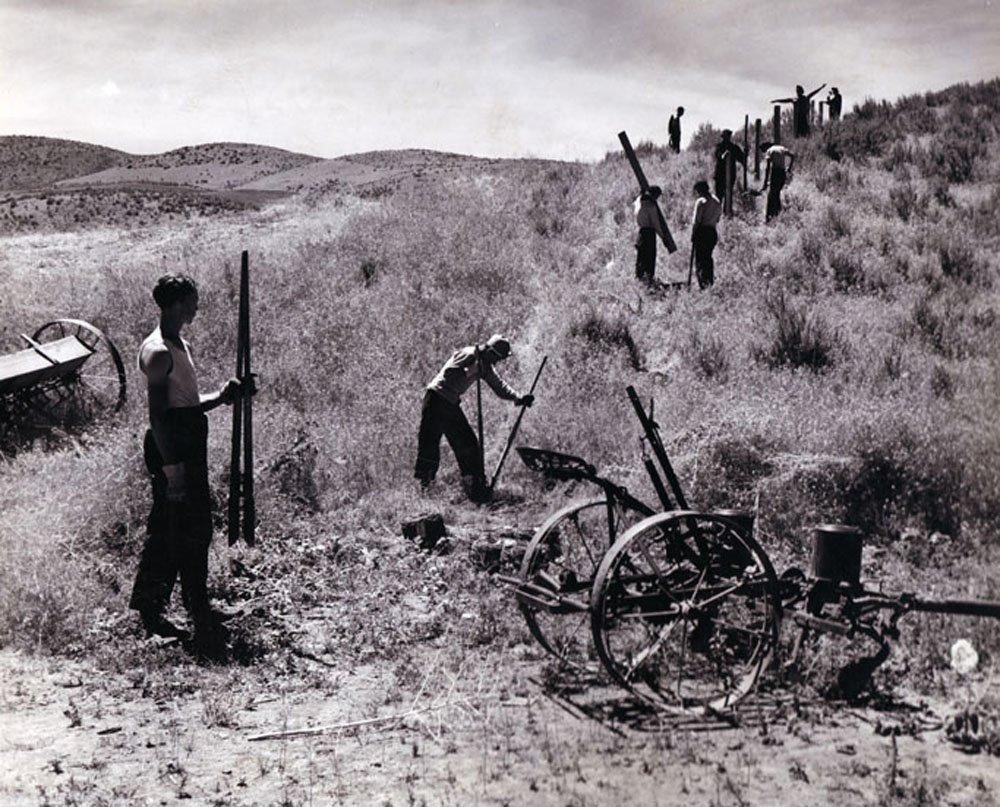Many of our public lands are neglected. Why would we write off big ideas to fix them?
Editor's Note: Barbara Baird and Will Brantley are friends, colleagues and staff writers for Realtree.com. But they don't always agree. Last week, they got into a debate over the merits of a modern-day, privately funded Civilian Conservation Corps that finally ended with Barb challenging Brantley to a "rumble." Brantley accepted, and his point of view is below. Check out Barb's Realtree Outdoor News post by clicking here. And be sure to leave us a comment to tell us who has it right.
Sportsmen are knocking on the door of a land crisis, despite access to millions of acres of public land. The problem isn't lack of dirt. It's the lack of management and maintenance. Secretary of the Interior Sally Jewell believes there are ways to address some of our public land woes, including with a revamped, privately funded, 21st Century version of the Civilian Conservation Corps (CCC).
Sec. Jewell's goal is to tap the private sector to raise $20 million in funding and put 100,000 youth and veterans to work on conservation projects and maintenance on public lands. She presented the idea during a speech to the Outdoor Retailer Winter Market Trade show in Salt Lake City last week, as reported by the Salt Lake Tribune. She stressed the importance of working with state officials, conservation groups, and yes, hunters to solve public land issues.

The lack of funding needs no explanation in today's climate. The original CCC was funded entirely by the U.S. Government, put into action fast and quite popular with the public. Regardless of your political leanings, you have to marvel at the efficiency at which government got stuff done in those days. Gridlock and dysfunction keep that from happening today.
So I like the idea of a modern CCC being voluntarily funded by private sources. Do I think big businesses should be writing blank checks for this program? No way. But successful businesses aren't in the habit of writing blank checks for anything. You can bet that if major corporations are footing the bill, they'll have a say in where the money is going.
National Wildlife Refuges and other public places need managers to keep them going. And not just in the short term. I'm frequently in contact with wildlife biologists who work in various offices across the country. I was employed by Ducks Unlimited for a couple years. Those guys will tell you that lack of recruitment to their field is a serious issue. See, there is a marked decline of wildlife biology majors graduating from our universities these days. The natural assumption is to blame the disconnect between today's young people and the outdoors. But that's not completely fair. According to this article, plenty of students are still signing up for natural resource-related majors. They just aren't sticking with it. Those programs are strenuous and difficult, but one of the chief reasons students say they are leaving is a lack of hands-on field experience.
Sec. Jewell hasn't presented a working plan yet. But the fact is, there is plenty to do on our public lands that can improve them. And there are future land managers in high school and college right now who might be more willing to stay the course if they had the chance to band a few ducks, clear a few trails or plant a few trees. Sec. Jewell may not have a plan yet, but she does have a pretty damn good idea. I'm not ready to write it off just because she comes from the government.






